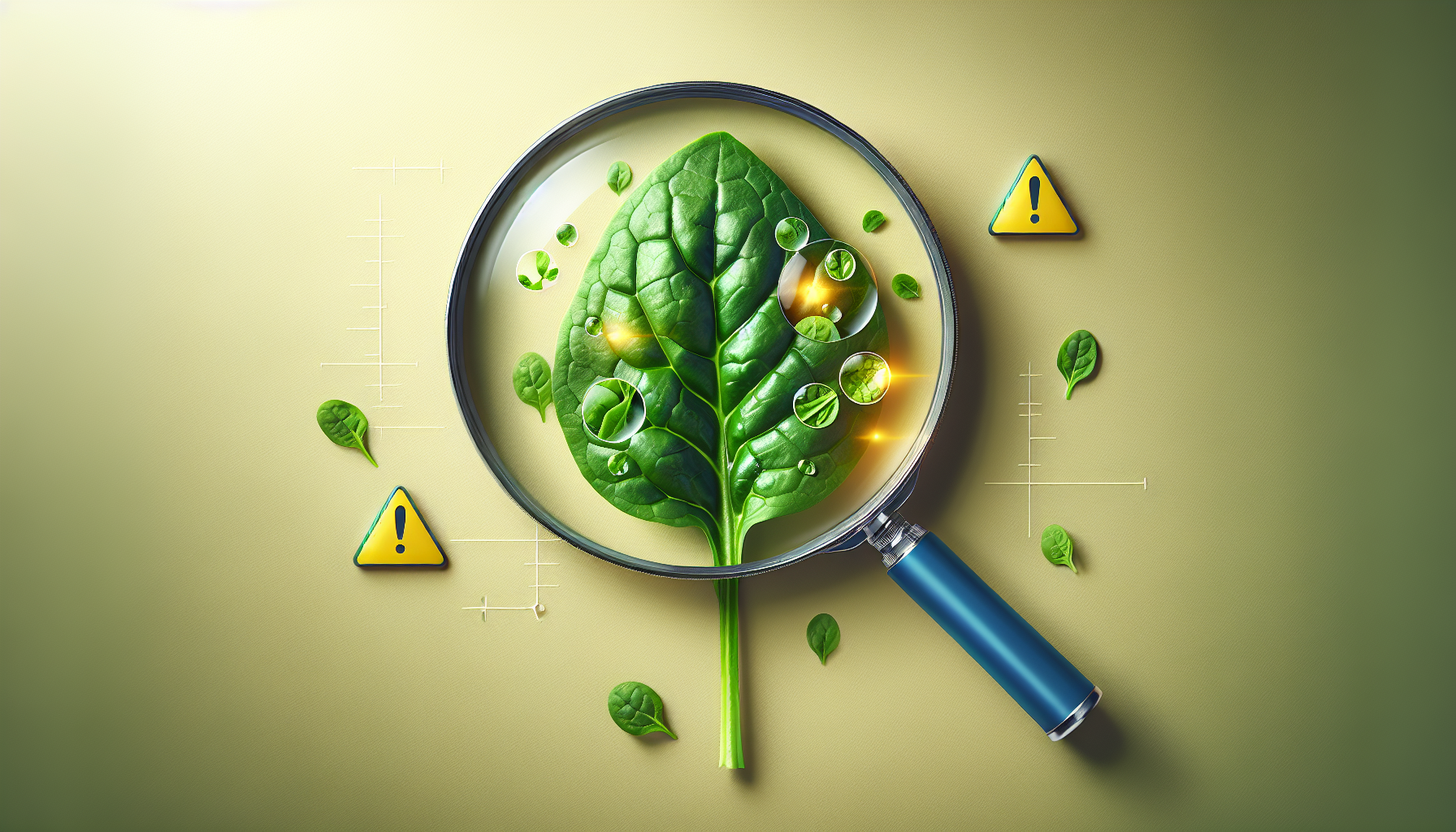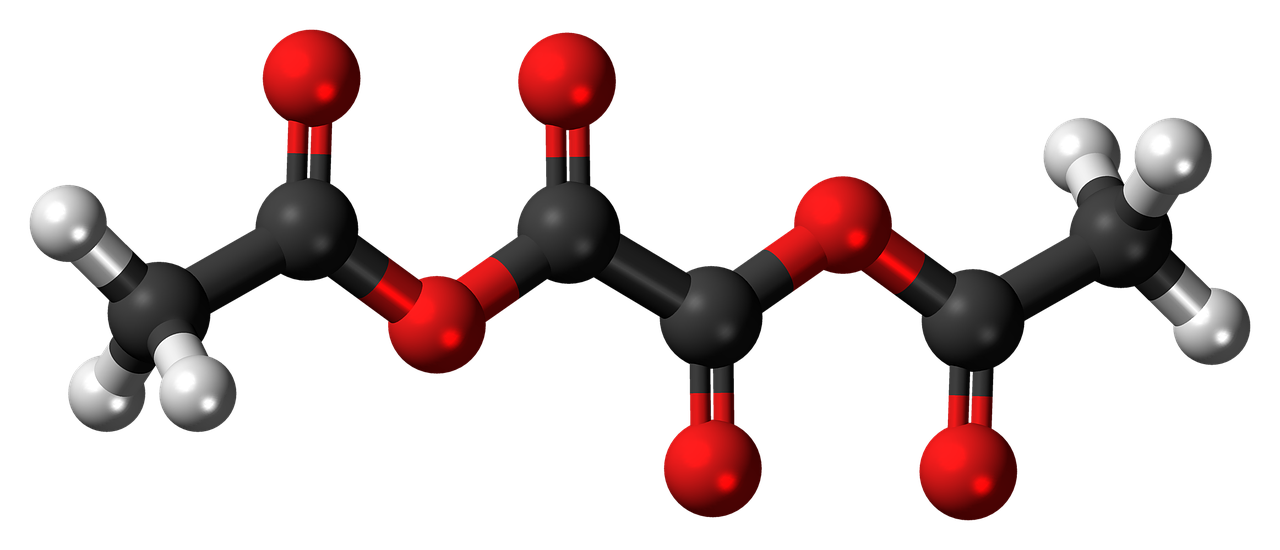Have you ever felt like certain foods set off a storm in your gut? For those with Irritable Bowel Syndrome (IBS) or Inflammatory Bowel Disease (IBD), identifying those troublemakers is often a full-time job. One of the potential culprits in this gut drama is oxalates. You might be wondering, can oxalates really aggravate IBS or IBD symptoms?
Understanding Oxalates
Oxalates are naturally occurring compounds found in many foods. They play a role in various plant processes, but when we consume them, they can have mixed effects on our bodies. For people with IBS or IBD, understanding oxalates can be crucial to managing symptoms effectively.
What Are Oxalates?
In simple terms, oxalates are organic acids. Usually found in high concentrations in foods like spinach, beet greens, and nuts, they can bind with minerals like calcium and form compounds that might not be absorbed in your gut. While our bodies can usually handle a normal amount of oxalates, some people find that their systems react poorly to them.
Where Are Oxalates Found?
You might be surprised at the variety of foods that contain oxalates. Here’s a quick breakdown of some common sources:
| Food Category | High Oxalate Foods |
|---|---|
| Vegetables | Spinach, Swiss chard, Beets |
| Fruits | Rhubarb, Starfruit, Kiwi |
| Nuts and Seeds | Almonds, Cashews, Peanuts |
| Grains | Wheat bran, Buckwheat |
If you’re already familiar with a limited diet because of IBS or IBD, differentiating which oxalate-rich foods might exacerbate your symptoms might seem like an uphill battle.
The Relationship Between Oxalates and Gut Health
Now that we have a grasp on what oxalates are and where they reside, it’s essential to consider how they interact with your gut health.
How Oxalates Affect Digestion
Oxalates are often poorly absorbed in the intestines. In some individuals, particularly those with IBS or IBD, the unabsorbed oxalates may travel through the digestive tract, leading to various symptoms. Some studies suggest that higher oxalate consumption can correlate with increased gut inflammation or irritation.
IBS Symptoms and Trigger Foods
If you suffer from IBS, you know that specific foods can trigger symptoms such as bloating, gas, cramps, and alterations in bowel habits. For some, oxalate-rich foods may fall into that category, exacerbating these uncomfortable symptoms.
IBD Symptoms and Dietary Choices
For those living with IBD, such as Crohn’s disease or ulcerative colitis, the relationship with oxalates can become even more complex. Inflammation and damage in the intestinal lining already make digestion tricky, and oxalates may aggravate this irritation or lead to further complications.

What Research Says About Oxalates and IBS/IBD
The link between oxalates and IBS or IBD isn’t fully understood, but research is beginning to shed some light on this potential connection.
Current Research Findings
Several studies have investigated the role of dietary oxalates in gut health. They reveal that:
- A diet high in oxalates may lead to increased urinary oxalate levels, which can correlate with kidney stones.
- Some individuals report symptom improvement when they reduce their oxalate intake.
- The presence of irritable bowel conditions may lead to altered oxalate metabolism.
While these findings are interesting, they haven’t definitively established oxalates as a root cause of IBS or IBD symptoms.
Anecdotal Evidence and Patient Stories
Outside of clinical research, anecdotal evidence is powerful. Many individuals with IBS or IBD have shared experiences of reducing high-oxalate foods from their diets, leading to noticeable symptom relief. These personal stories can offer insight but should be approached with caution—what works for one person may not work for another.
Should You Cut Oxalates From Your Diet?
Before you make any drastic changes to your diet, it’s essential to consider the complexities involved.
Consult a Healthcare Professional
If you suspect oxalates are contributing to your IBS or IBD symptoms, talking to a healthcare provider, such as a registered dietitian or a gastroenterologist, can help. They can guide you through the elimination process in a way that safeguards your nutritional needs while investigating potential triggers.
Testing the Waters: A Possible Elimination Diet
An elimination diet can help you identify if oxalates are causing issues. By temporarily removing high-oxalate foods from your diet, you might notice a difference in your symptoms. After a period (usually about four to six weeks), you could gradually reintroduce these foods one at a time to see if specific ones trigger discomfort.
Understand Nutrient Deficiencies
If you decide to cut down on oxalate-rich foods, be careful about the nutrients you may be missing. High-oxalate foods are often rich in vitamins, minerals, and antioxidants. It’s relevant to ensure you’re not unwittingly depriving yourself of important nutrients when shifting your diet.

A Closer Look at High-Oxalate Foods
Let’s delve further into some commonly consumed high-oxalate foods and potential alternatives you might consider.
Vegetables
While vibrant vegetables are often part of a healthy diet, some are notably high in oxalates:
- Spinach: A great source of vitamins and minerals but high in oxalates.
- Beets: Rich in betaine, useful for liver health.
- Kale: A lower oxalate alternative, fortified with fiber and minerals.
Fruits
If you enjoy fruit, remember that not all have the same oxalate levels:
- Rhubarb: Extremely high in oxalates.
- Kiwi: Has moderate levels but offers substantial vitamin C.
- Berries: Generally lower in oxalates and nutrient-dense.
Nuts and Seeds
These are often packed with healthy fats but come with their own oxalate baggage:
- Almonds: High oxalate levels.
- Walnuts & Pecans: More suitable for those monitoring oxalate intake.
Nutritional Alternatives and Considerations
Finding alternatives that maintain your health while addressing potential oxalate concerns is vital.
Low-Oxalate Substitutes
Consider exploring options in your diet that offer similar nutritional benefits without high oxalate content. For example:
| High Oxalate Food | Lower Oxalate Substitute |
|---|---|
| Spinach | Romaine lettuce |
| Beet Greens | Cabbage |
| Almonds | Macadamia nuts |
Balancing Your Diet
It’s essential to ensure your diet remains balanced. Incorporate diverse sources of proteins, vegetables, fruits, and grains while being mindful of oxalate levels.
Listening to Your Body
Above everything, listen to your body. You’re the best judge of how specific foods affect you. Keeping a food journal can be beneficial for tracking symptoms alongside your dietary choices.

Moving Forward with Oxalates and Digestive Health
As you navigate your relationship with oxalates and their impact on IBS or IBD, remember that understanding your body is a journey.
Empower Yourself through Education
Stay informed about your choices. Whether through reading, consultations, or even support groups, knowledge is empowering.
Stay Open to Adjustments
Your symptoms and tolerance can change over time. Remain flexible in your dietary approach; what works today might evolve in the future.
Finding a Support Network
Connecting with others who share similar struggles—whether through forums, social media groups, or in-person meetups—can offer invaluable support and insight. You’re not alone in this!
Conclusion
So, can oxalates aggravate IBS or IBD symptoms? While there’s no one-size-fits-all answer, the relationship is certainly worth exploring. Each person’s experience is unique, and with careful observation, informed choices, and maybe a little trial and error, you can find what works best for your body. Remember, empowering yourself with knowledge and remaining adaptable can help you navigate your digestive health with confidence.


